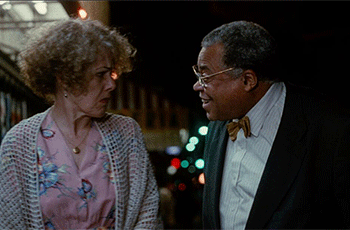
Explained: What is Martin Scorsese's World Cinema Project?
M.J Fleury 12/05/2022Martin Scorsese is one of the world’s most well known film directors. Throughout his long and vast career, Scorsese has accumulated a number of prestigious accolades, honors, and nominations including an Academy Award for Best Director for the film, The Departed. Arguably one of his best achievements is The Film Foundation's World Cinema Project.
The World Cinema Project, founded in 2007, “has maintained a fierce commitment to preserving and presenting masterpieces from around the globe, with a growing roster of dozens of restorations that have introduced moviegoers to often overlooked areas of cinema history” (via The Film Foundation). The Project has released four collections in conjunction with the Criterion Collection. So far, Scorsese's efforts have yielded the accumulation of a number of underrepresented films, including those from Africa, Asia, Eastern Europe, Central America, South America, and the Middle East.
World Cinema Project No. 1
This first collection from The World Cinema Project is composed of six films from Senegal, Turkey, Mexico, Bangladesh/India, Morocco, and South Korea. Touki Bouki, released in 1973 and directed by Djibril Diop Mambéty, is a Senegalese film about two lovers, Anta and Mory, who leave Senegal to pursue a better life in France. The WCP restored this African drama in 2008 as part of its first collection.
Dry Summer, restored in 2008, won the Golden Bear at the 1964 Berlin International Film Festival. The film, directed by Metin Erksan, follows a tobacco farmer who constructs a dam to prevent excess water from flowing downhill to his neighbor's field. According to the WCP, Dry Summer is "a benchmark of Turkish cinema" and "a visceral, innovatively shot and vibrantly acted depiction of the horrors of greed." This first collection from the WCP also features the films Trances (Morocco, 1981), The Housemaid (South Korea, 1960), Redes (1936, Mexico), and A River Called Titas (1973, Bangladesh/India).
World Cinema Project No. 2
Project No. 2 of the WCP takes us to the Philippines, Thailand, the Soviet Union, Brazil, Turkey, and Taiwan. This collection's list of films evokes themes of crime, revenge, and melancholy. One of the most notable works in this collection is the experimental film, Mysterious Objects at Noon. Filmmaker Apichatpong Weerasethakul "brought an appetite for experimentation to Thai cinema with his debut feature, an uncategorizable work that refracts documentary impressions of his homeland through the surrealist concept of the exquisite corpse game." It initially released in 2000 and restored in 2013 by the WCP.
Insiang, another notable work from WCP's second collection, is a film by Lino Brocka that was initially released in 1976. The film follows Insiang, who "leads a quiet life dominated by household duties, but after she is raped by her mother’s lover and abandoned by the young man who claims to care for her, she exacts vicious revenge." Collection No. 2 also features the films Revenge (1989, Soviet Union), Limite (1931, Brazil), Law of the Border (1966, Turkey), and Taipei Story (1985, Taiwan).
World Cinema Project No. 3
The Project's third collection restored films from Cuba, Indonesia, Brazil, Mexico, Iran, and Mauritania and contains themes such as "revolution, identity, agency, forgiveness, and exclusion." According to the Criterion Collection, Lucía is "a formally dazzling landmark of Cuban cinema" that "recounts the history of a changing country through the eyes of three eponymous women." The film was originally released in 1968 and was directed by Humberto Solás.
Downpour is a 1972 Iranian film about a schoolteacher who begins a new job in an unfamiliar city in pre-revolutionary Iran. Over the course of the film he falls in love with an underprivileged, uneducated, hardworking woman in his new city. Downpour was directed by Bahram Beyzaie and was "painstakingly restored from the only known surviving print." This collection also features the films After the Curfew (1954, Indonesia), Pixote (1981, Brazil), Dos Monjes (1934, Mexico), Soleil Ô (1970, Mauritania).
The World Cinema Project No. 4
The most recently released collection of films from Scorsese's World Cinema Project includes restorations of films from Angola, Argentina, Iran, Cameroon, Hungary, and India. Prisoneros de la tierra was released in 1939 and directed by Mario Soffici. In this film, "desperate men are entrapped into indentured labor on a yerba maté plantation under the brutal foreman Köhner — a situation made tenser by the fact that both Köhner and a worker named Podeley love Andrea, the sweet-spirited daughter of the camp’s doctor, and that eventually boils over into an explosive rebellion led by Podeley."
Directed by Dikongué-Pipa and released in 1975, Muna Moto is "a delicate, emotionally resonant love story." Because he is too poor to fulfill the traditions of courtship in his Cameroon village, Ngando is unable to marry the woman he loves. When his would-be wife, Ndomé, is forced to marry Ngando's uncle while raising their child without him, Ngando takes matters into his own hands by kidnapping his own daughter. The most recent WCP collection also contains the films, Sambizanga (1972, Angola), Chess of the Wind (1976, Iran), Two Girls on the Street (1939, Hungary), and Kalpana (1948, India).
Movieweb